The United Nations 68 years on
https://youtu.be/_fE7VtbWsbA Toward a Unity of Nations and a Unity of People
Read complete text of Chiara Lubich‘s address
https://youtu.be/_fE7VtbWsbA Toward a Unity of Nations and a Unity of People
Read complete text of Chiara Lubich‘s address
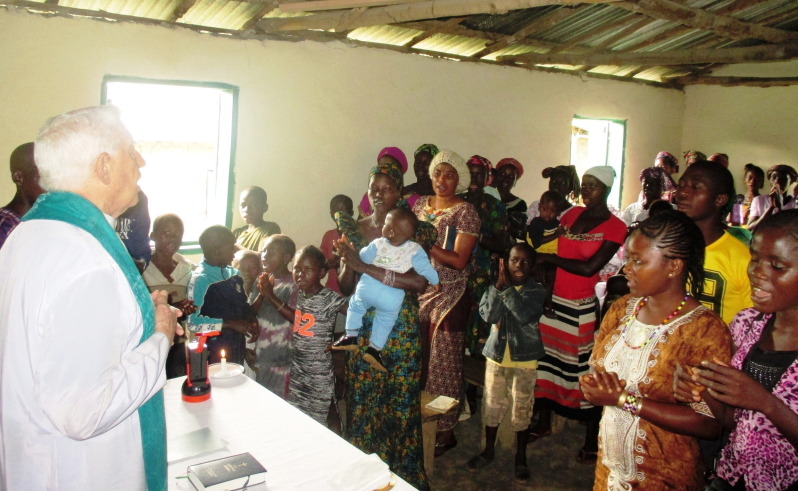
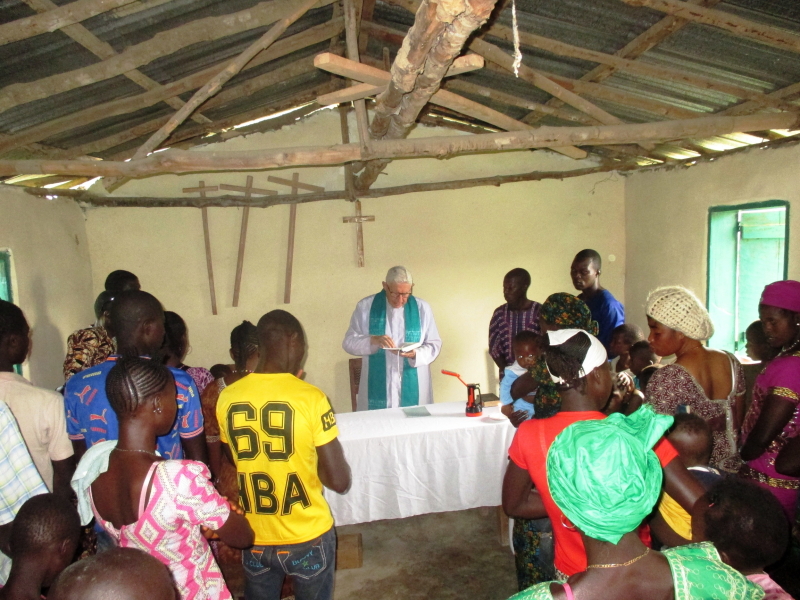 The first initiative of the Evangelii Gaudium Centre, created in Loppiano (Florence) to become the “Church that goes out,” is a qualification course in collaboration with the Sophia University Institute entitled, “Wake up the world.” This compelling slogan describes precisely Consecrated Life that will “Wake up the world,” in which consecrated persons with their radical choice of life, concur to restore true fraternity and communion in the world. It is the story of Fr. Antonio Guiotto in Sierra Leone: a Xaverian missionary. He had adhered to the spirituality of the Focolare ever since he was a student, and is now celebrating his 50th anniversary of priesthood, most of which was spent in the African country, and out of which around ten years (1991 to 2001) were in the frontline of a terrible civil war which terrorized and devastated Sierra Leone. And though like other foreigners he could have returned home, Fr. Antonio decided to remain in Kabala to share with its people all the events, helping them to continue believing in God’s immense love, despite everything. Very soon, he and Fr. Carlo, a congregation brother who also lived the Focolare spirit, created a small group that tried to live the Gospel and share their life experiences: a flicker of hope that lit up amid so much hatred and violence. But also Kabala was invaded by the rebels, and so the two religious – foreigners, and easy prey to kidnappers – took refuge in the woods. Despite the dangers, his people helped them with food and water, and in turn were supported by the light and hope which the two religious instilled in all. When there was no longer any imminent danger, they opened their homes since the missionary house had been completely destroyed. The family that hosted them shared the little they had, and the two religious gave a hand in the house and with the children. After a month, the couple asked to become Christians and for the children to be baptized. In the meantime, however, the situation started to worsen again. Squads of rebels roamed all over Sierra Leone and the two Fathers had to move to Freetown. It was a forced transfer which became an occasion to sow the Gospel also in the capital.
The first initiative of the Evangelii Gaudium Centre, created in Loppiano (Florence) to become the “Church that goes out,” is a qualification course in collaboration with the Sophia University Institute entitled, “Wake up the world.” This compelling slogan describes precisely Consecrated Life that will “Wake up the world,” in which consecrated persons with their radical choice of life, concur to restore true fraternity and communion in the world. It is the story of Fr. Antonio Guiotto in Sierra Leone: a Xaverian missionary. He had adhered to the spirituality of the Focolare ever since he was a student, and is now celebrating his 50th anniversary of priesthood, most of which was spent in the African country, and out of which around ten years (1991 to 2001) were in the frontline of a terrible civil war which terrorized and devastated Sierra Leone. And though like other foreigners he could have returned home, Fr. Antonio decided to remain in Kabala to share with its people all the events, helping them to continue believing in God’s immense love, despite everything. Very soon, he and Fr. Carlo, a congregation brother who also lived the Focolare spirit, created a small group that tried to live the Gospel and share their life experiences: a flicker of hope that lit up amid so much hatred and violence. But also Kabala was invaded by the rebels, and so the two religious – foreigners, and easy prey to kidnappers – took refuge in the woods. Despite the dangers, his people helped them with food and water, and in turn were supported by the light and hope which the two religious instilled in all. When there was no longer any imminent danger, they opened their homes since the missionary house had been completely destroyed. The family that hosted them shared the little they had, and the two religious gave a hand in the house and with the children. After a month, the couple asked to become Christians and for the children to be baptized. In the meantime, however, the situation started to worsen again. Squads of rebels roamed all over Sierra Leone and the two Fathers had to move to Freetown. It was a forced transfer which became an occasion to sow the Gospel also in the capital.  In 2000, an attempted coup d’etat further put their lives at risk, so much so that the Italian Ambassador decided to transfer them immediately to Guinea on a small plane. Despite these adversities, the spirituality of the Focolare transmitted with their lives, progressed in great leaps. The minute they could, a three-day Mariapolis was organized with 170 people, among which was also the Bishop of Makeni. «I can truthfully affirm – wrote Fr. Antonio – that the promise of Jesus that “Whoever has left their home, brothers and sisters, father or mother, children or field in my name, will receive the hundred fold,” had fully come true. In my mission I found that fathers, mothers, brothers and the hundredfold in this life was a deposit for that which would come. New Christians were born, many couples were married in church, and new Focolare communities arose in Freetown, Makeni, Kamabai, Kabala, and also in the remote villages. New churches and Catholic schools were built. After a period passed in Italy, the Lord has now granted me the grace to return to my beloved Sierra Leone to continue to give my life for my people.» From October 2016 to March h 2017, the course of the Evangelii Gaudium Centre addressing educators, tutors and students of missionary pastoral theology, will provide monthly, a two-day session during which the lesson will alternate with practice exercises, in order to become – as the brochure says – “experts of communion” who like Fr. Antonio, “wake up the world.” The October session concluded with around 20 enrollees, and the second will take place from 13 to 15 November. The course directors are two personages of great academic experience in Rome: Sr. Tiziana Longhitano sfp*, Rector of the Pontifical Urbania University and Fr. Theo Jansen ofmcap*, Professor of the Pontifical Antonianum University. *For info and course enrollment in Loppiano “Wake up the world”: Sr. Tiziana cell. +39.329.1663136, Fr. Theo cell. +39.338.6845737.
In 2000, an attempted coup d’etat further put their lives at risk, so much so that the Italian Ambassador decided to transfer them immediately to Guinea on a small plane. Despite these adversities, the spirituality of the Focolare transmitted with their lives, progressed in great leaps. The minute they could, a three-day Mariapolis was organized with 170 people, among which was also the Bishop of Makeni. «I can truthfully affirm – wrote Fr. Antonio – that the promise of Jesus that “Whoever has left their home, brothers and sisters, father or mother, children or field in my name, will receive the hundred fold,” had fully come true. In my mission I found that fathers, mothers, brothers and the hundredfold in this life was a deposit for that which would come. New Christians were born, many couples were married in church, and new Focolare communities arose in Freetown, Makeni, Kamabai, Kabala, and also in the remote villages. New churches and Catholic schools were built. After a period passed in Italy, the Lord has now granted me the grace to return to my beloved Sierra Leone to continue to give my life for my people.» From October 2016 to March h 2017, the course of the Evangelii Gaudium Centre addressing educators, tutors and students of missionary pastoral theology, will provide monthly, a two-day session during which the lesson will alternate with practice exercises, in order to become – as the brochure says – “experts of communion” who like Fr. Antonio, “wake up the world.” The October session concluded with around 20 enrollees, and the second will take place from 13 to 15 November. The course directors are two personages of great academic experience in Rome: Sr. Tiziana Longhitano sfp*, Rector of the Pontifical Urbania University and Fr. Theo Jansen ofmcap*, Professor of the Pontifical Antonianum University. *For info and course enrollment in Loppiano “Wake up the world”: Sr. Tiziana cell. +39.329.1663136, Fr. Theo cell. +39.338.6845737.
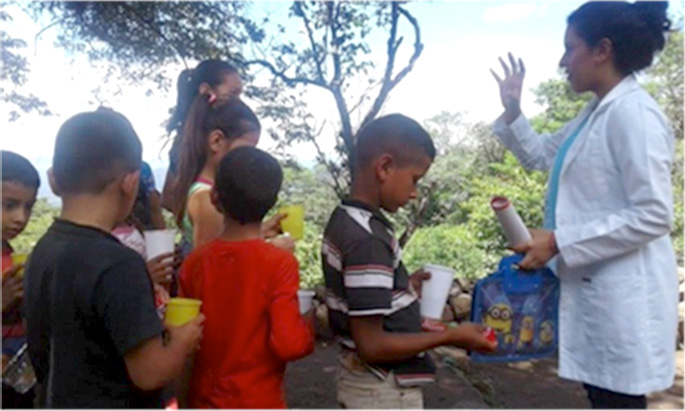
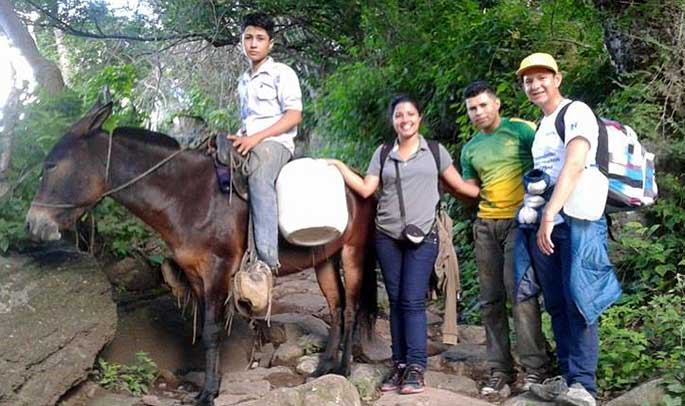 Selfless giving and receiving was the experience of the Youth for a United World from Managua, Nicaragua, during their visit to the small Focolare community of La Cal, a village that rises 1200 metres above sea level near the coffee capital of Jinotega. Armed with some bags of clothing, food, medicinals and toys that were all gathered by the community in Managua, they reached Jinotega after a 3-hour bus ride. Then they drove for 8 km in a pick-up until the road became too rough to travel on. It was still another kilometre and a half through a forest fraught with stones, crevasses and deep slopes that made the trek impossible even for the horses, and the young people had to continue on foot. “You could never imagine the wonderful welcome we received,” the young people report. The village of La Cal was in unstable condition. Its wooden houses teeming with children were without electricity, running water or medical supplies. There was a small shop in the village with some basic relief-items, a small school with one classroom, one teacher and a tiny chapel for when a pricst arrived for Mass. If not for the solar panels that were recently installed, the whole village would be in complete darkness.
Selfless giving and receiving was the experience of the Youth for a United World from Managua, Nicaragua, during their visit to the small Focolare community of La Cal, a village that rises 1200 metres above sea level near the coffee capital of Jinotega. Armed with some bags of clothing, food, medicinals and toys that were all gathered by the community in Managua, they reached Jinotega after a 3-hour bus ride. Then they drove for 8 km in a pick-up until the road became too rough to travel on. It was still another kilometre and a half through a forest fraught with stones, crevasses and deep slopes that made the trek impossible even for the horses, and the young people had to continue on foot. “You could never imagine the wonderful welcome we received,” the young people report. The village of La Cal was in unstable condition. Its wooden houses teeming with children were without electricity, running water or medical supplies. There was a small shop in the village with some basic relief-items, a small school with one classroom, one teacher and a tiny chapel for when a pricst arrived for Mass. If not for the solar panels that were recently installed, the whole village would be in complete darkness.  There were also two medical doctors with the Youth for a United World. One of them, a dentist who began the day with a presentation on oral hygiene to thirty children who so happy to use a tooth brush and toothpaste for the first time in their lives. At lunchtime one family wanted to offer some very warm and delicious tortillas, as the young people gathered the small children for games. In the afternoon presentations were offered for adults on parasite prevention. The very intense day concluded with a reading of the Word of Life, a deep spiritual moment that enveloped everyone. We were all very moved when an elderly man wished to give his blessing to the young people. This was followed by the distribution of goods that the young people had brought for them. They were offered an ex-chicken coop to sleep in that night. “It was so moving for us,” they write, “to spend the night in an ex-chicken coop just like the men in the first focolare whose house was an ex-chicken coop. In the morning, after a good breakfast that had been prepared by the women of the village, we were invited to return again soon and left for Jinotega. We went to the cathedral to thank God for the experience that had changed us so much, that had allowed us know such generous people who live their daily struggle with such dignity and joy of knowing God’s immense love for them – and for having had constructed in the midst of those mountains another small piece of universal brotherhood.”
There were also two medical doctors with the Youth for a United World. One of them, a dentist who began the day with a presentation on oral hygiene to thirty children who so happy to use a tooth brush and toothpaste for the first time in their lives. At lunchtime one family wanted to offer some very warm and delicious tortillas, as the young people gathered the small children for games. In the afternoon presentations were offered for adults on parasite prevention. The very intense day concluded with a reading of the Word of Life, a deep spiritual moment that enveloped everyone. We were all very moved when an elderly man wished to give his blessing to the young people. This was followed by the distribution of goods that the young people had brought for them. They were offered an ex-chicken coop to sleep in that night. “It was so moving for us,” they write, “to spend the night in an ex-chicken coop just like the men in the first focolare whose house was an ex-chicken coop. In the morning, after a good breakfast that had been prepared by the women of the village, we were invited to return again soon and left for Jinotega. We went to the cathedral to thank God for the experience that had changed us so much, that had allowed us know such generous people who live their daily struggle with such dignity and joy of knowing God’s immense love for them – and for having had constructed in the midst of those mountains another small piece of universal brotherhood.”
The objective of the convention to be held in the Mariapolis Centre at Castel Gandolfo (Rome), is to review the professions or activities of magistrates, lawyers, chancellors, prison staff and law enforcers, and discover the path to be pursued together to achieve justice, involving all the “actors” of the multifaceted relationships involved. On Saturday afternoon, there will be separate sessions according to professions or work fields, developed to help these pathways: magistrates coordinated by Dr. Gianni Caso, President Emeritus of the Court of Cassation Section; lawyers coordinated by Atty. Orazio Moscatello of the Court of Bari and Dr. Fiorella Verona of the Court of S. Maria Capua Vetere; court personnel coordinated by Concetta Rubino, Chancellor in the Court of Naples; prison staff coordinated by Dr. Sebastiano Zinna, former director of the UEPE in Rome and Dr. Salvatore Nasca, Director of UEPE in Florence; and law enforcers coordinated by Dr. Pasquale De Rosa, former official of the Ministry of Defence. The convention is undergoing accreditation procedures by the Council of the Lawyers’ Roll of Velletri (Rome) for the recognition as a professional development course. Program Enrolment and bookings open up to 15 November 2016: prenotazioni@comunionediritto.org Enrolment form
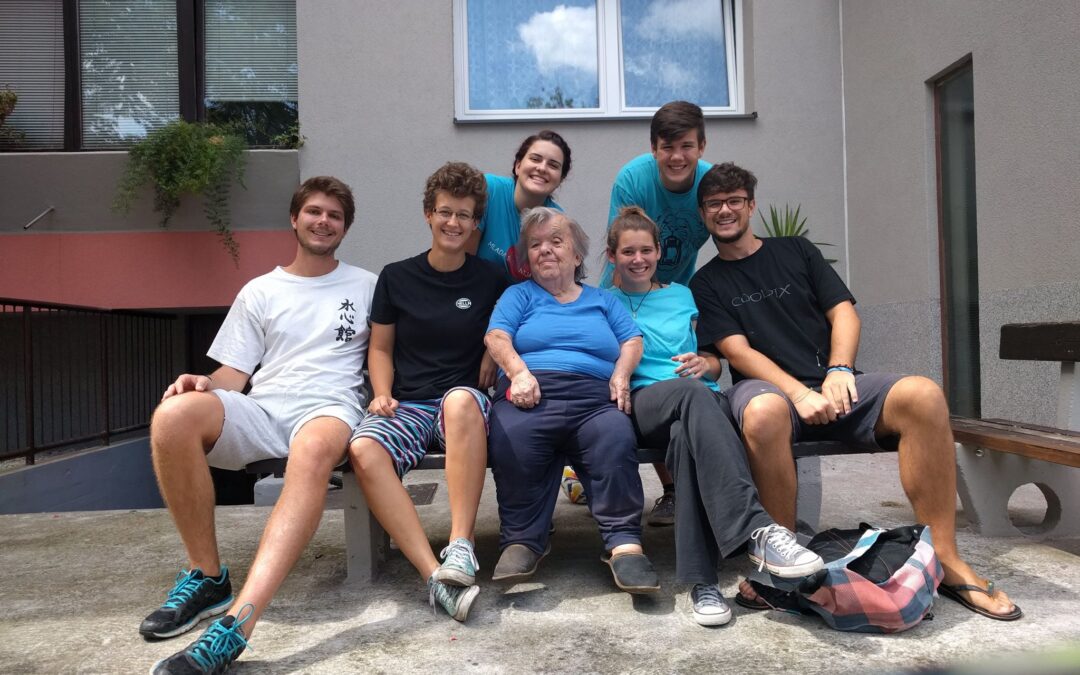
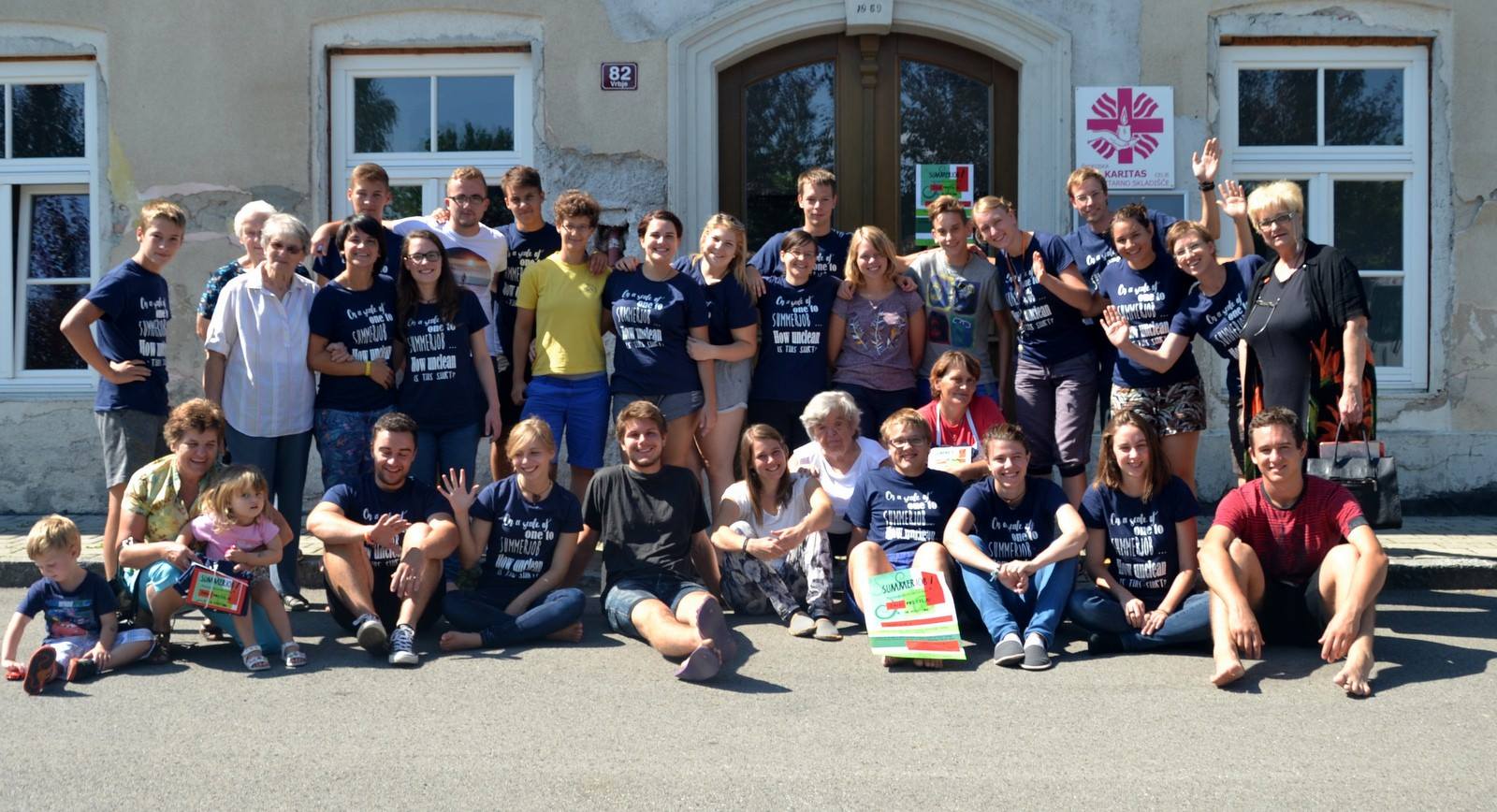 The International Day for the eradication of Poverty was commemorated on 17 October. It was instituted by Father Wresinki in 1987, when he organized a great human rights demonstration in Paris. Poverty is manifested in various ways, incarnating situations, places and entire populations. We will never get used to the fact that there are human beings who cannot enjoy a life worth living. In winter the Youths for a United World of Slovenia dedicate themselves – among other activities – to organising “Summer jobs,” in a summer work camp: in pursuit of the needs of the place, to make various contacts with the mayors, bishops, parish priests and persons of a given locality, to see how they can give their own contribution during summer, to help people in need. This year, in collaboration with the local Caritas association, people and families who needed very concrete help were sought out.
The International Day for the eradication of Poverty was commemorated on 17 October. It was instituted by Father Wresinki in 1987, when he organized a great human rights demonstration in Paris. Poverty is manifested in various ways, incarnating situations, places and entire populations. We will never get used to the fact that there are human beings who cannot enjoy a life worth living. In winter the Youths for a United World of Slovenia dedicate themselves – among other activities – to organising “Summer jobs,” in a summer work camp: in pursuit of the needs of the place, to make various contacts with the mayors, bishops, parish priests and persons of a given locality, to see how they can give their own contribution during summer, to help people in need. This year, in collaboration with the local Caritas association, people and families who needed very concrete help were sought out. 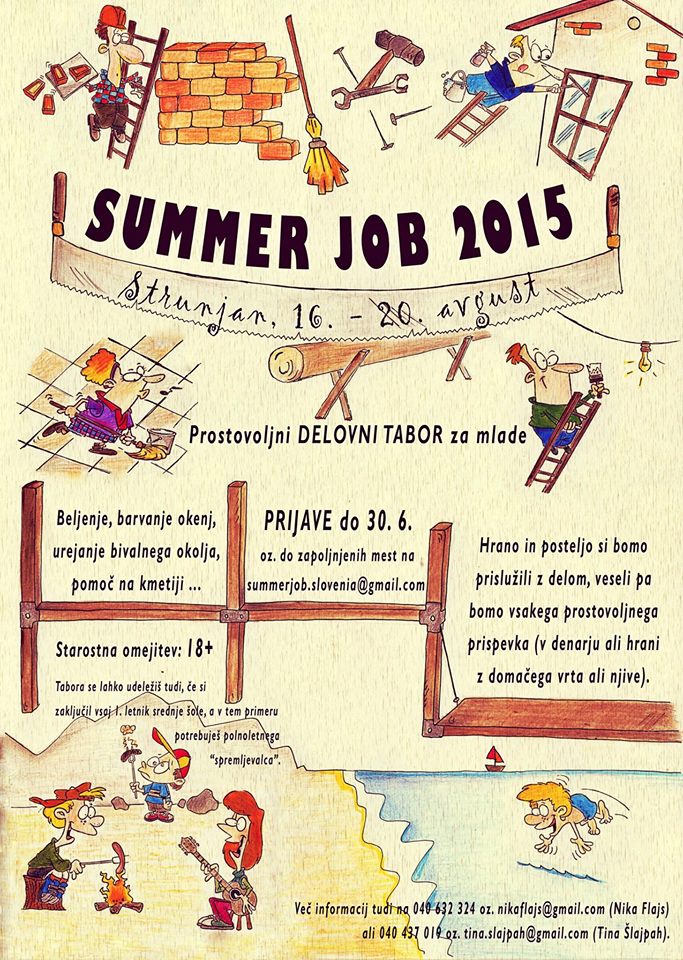 They organised an end-of-summer event from 15 to 20 August in Vrbje, a small village close to Celje. This third edition saw the opening of nine work sites. About 40 people dedicated themselves, seven hours a day, to many activities such as work in the fields, renovation of the courtyard of a house, construction of a chicken coop, restructuring of a disabled woman’s home, preparing aid for the population of Macedonia struck by floods or whitewashing the house of a woman living in miserable conditions. This was all a specific way of putting fraternity into practice, weaving deep relationships with the local folks, and restoring to many, that dignity they often feel to have lost. The decision to share some of the situations and try to bring relief to those who live at the outskirts of society is a demanding choice which requires time and energy, but it is above all the choice to give of oneself that started up the initiative.
They organised an end-of-summer event from 15 to 20 August in Vrbje, a small village close to Celje. This third edition saw the opening of nine work sites. About 40 people dedicated themselves, seven hours a day, to many activities such as work in the fields, renovation of the courtyard of a house, construction of a chicken coop, restructuring of a disabled woman’s home, preparing aid for the population of Macedonia struck by floods or whitewashing the house of a woman living in miserable conditions. This was all a specific way of putting fraternity into practice, weaving deep relationships with the local folks, and restoring to many, that dignity they often feel to have lost. The decision to share some of the situations and try to bring relief to those who live at the outskirts of society is a demanding choice which requires time and energy, but it is above all the choice to give of oneself that started up the initiative. 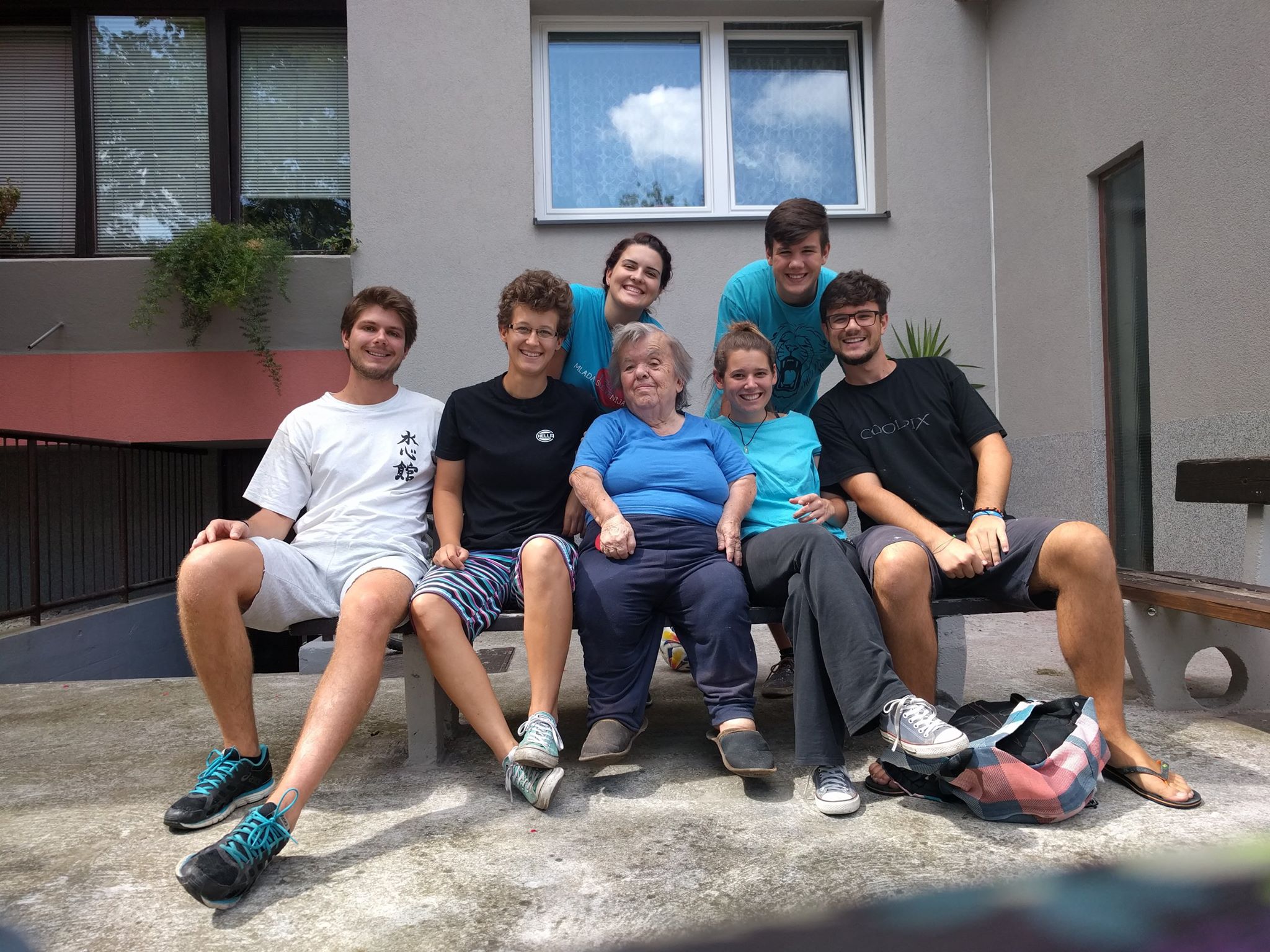 Some of the participating youths wrote about their deep impressions: «It was precisely the more difficult jobs that made us understand how most of the time, relational problems lie at the roots of poverty. For example, with a woman, even if our work had already been defined, we spent more time on the first day, only in getting to know each other, so she could trust us. Only later did she allow us to work on her apartment which needed all sorts of things». There was a lot of time for listening, speaking with many and having an exchange of experiences, worries, and future projects. All this came about in an atmosphere in which all helped each other in utmost readiness, and as a consequence, with the fullness of joy. But the Summerjob did not only consist in work: in the evening everyone shared the experiences lived during the day, and these were solemn, engaging moments that bound and united the participants more and more. Other impressions were: «Upon saying goodbye on the last day with the “employers” we suggested having coffee together to see the photos of the summer camp. It was a mystery what we managed to build in just four days. It was a really impressive moment! Just to think that in the end, the person who receives more is always the one who gives with joy. See the page on facebook of the Summerjob Slovenia 2016
Some of the participating youths wrote about their deep impressions: «It was precisely the more difficult jobs that made us understand how most of the time, relational problems lie at the roots of poverty. For example, with a woman, even if our work had already been defined, we spent more time on the first day, only in getting to know each other, so she could trust us. Only later did she allow us to work on her apartment which needed all sorts of things». There was a lot of time for listening, speaking with many and having an exchange of experiences, worries, and future projects. All this came about in an atmosphere in which all helped each other in utmost readiness, and as a consequence, with the fullness of joy. But the Summerjob did not only consist in work: in the evening everyone shared the experiences lived during the day, and these were solemn, engaging moments that bound and united the participants more and more. Other impressions were: «Upon saying goodbye on the last day with the “employers” we suggested having coffee together to see the photos of the summer camp. It was a mystery what we managed to build in just four days. It was a really impressive moment! Just to think that in the end, the person who receives more is always the one who gives with joy. See the page on facebook of the Summerjob Slovenia 2016
Representatives of the Brazilian Methodist Church and the Baptist Church of the Philippines will also attend. The head moderator will be Cardinal Francis X. Kriengsak Kovithavanij, Archbishop of Bangkok. The theme chosen for this year: “Jesus crucified and abandoned as the basis of a spirituality of communion,” in an atmosphere of fraternal communion and reconciliation, in the context of the 500th anniversary celebration of the Reform. The meeting’s agenda will include theological and spiritual discourses in the light of the spirituality of the Focolare, liturgical celebrations of the various Christian traditions and many sessions of exchange and communion among the participants. Moreover, they will visit the Dachau concentration camp and some important sites of the Reform. An important moment will be the ecumenical rite in the Church of St. Anne in Augsburg on 26 October. The celebration will focus on the memorial of the “Joint Declaration on the Doctrine of Justification” with which the Catholic Church and the Worldwide Lutheran Federation had put an end to mutual judgements and anathemas. On Thursday, 27 October, the bishops will be received by the Mayor of Augsburg, Dr. Kurt Gribl.
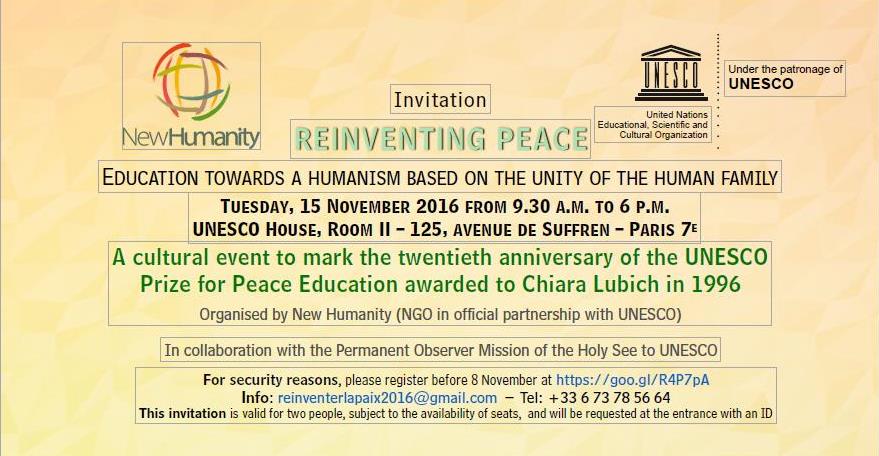
 The wars which for too many years have been devastating continents that are only sea distance away from Europe have come into our home, and now terrorism has become the last frontier. And it is in France, one year after the terrible massacre at the Bataclan that the challenge of peace is being relaunched. On 17 December 1996, in Paris, Chiara Lubich received the UNESCO Prize for Peace Education in recognition for a life spent in the dissemination of a culture of unity and peace and the formation of thousands and thousands of people of every race and latitude. The Focolare Movement has been present at UNESCO through its New Humanity NGO. The General Management of UNESCO and the Holy See’s Permanent Observer wished to reaffirm and testify to their commitment to unity and peace by proposing a day of reflection and testimony in five areas: Education, the Common Good, Justice, Ecology and Art. Theme of the event Last April, at the United Nations in New York, Maria Voce proposed focusing on radical dialogue in the search for peace. She was speaking at a debate on the promotion of tolerance and reconciliation: “[Dialogue] is risky, demanding, challenging, aimed at severing the roots of misunderstanding, fear and resentment.” The challenge of dialogue is timelier than ever. It is the starting point for creating the mosaic of peace, one day at a time, one tile at a time. It is the way to build a planet where there is a mutual recognition of identity and diversity, the mending of the social fabric, new attention to the needy, to justice, to human dignity and to sharing the world’s goods. The very word peace draws its deepest meaning from its Sanskrit root pak, which means join, unite. Committing oneself to reinventing peace means creating connections that will require the involvement of human, intellectual and institutional resources. It means calling upon the world economy, international law and peace education at all levels. It means valuing cultural diversity, that is, the invaluable identity of every people. It means equipping the new generations for a culture of dialogue and encounter. It means facing up to the refugee crisis concretely. It means protecting the environment, opposing corruption and promoting the rule of law at every level. It means halting the increase in military spending and the arms trade. It means coming up with a new security plan, stability and cooperation for the Middle East. Program and speakers The event will be attended by members of the diplomatic world, experts on international relations and the peace process and representatives from New Humanity and the Focolare Movement. The first session, titled Chiara Lubich, Peace Education, will be introduced by representatives from UNESCO and by Msgr Francesco Follo, Permanent Observer of the Holy See. This will be followed by presentations from Maria Voce and Jesús Morán, president and co-president of the Focolare Movement. The second session – Five paths for peace education on five continents – will carry on with examples of best practices from around the world. In the afternoon there will be an open session titled Dialogue, the remedy for the world’s problems, which will be opened by former Italian Prime Minister, Enrico Letta, and current president of the Jacques Delors Institute. Then there will be two moments of discussion on religions, economy and politics.
The wars which for too many years have been devastating continents that are only sea distance away from Europe have come into our home, and now terrorism has become the last frontier. And it is in France, one year after the terrible massacre at the Bataclan that the challenge of peace is being relaunched. On 17 December 1996, in Paris, Chiara Lubich received the UNESCO Prize for Peace Education in recognition for a life spent in the dissemination of a culture of unity and peace and the formation of thousands and thousands of people of every race and latitude. The Focolare Movement has been present at UNESCO through its New Humanity NGO. The General Management of UNESCO and the Holy See’s Permanent Observer wished to reaffirm and testify to their commitment to unity and peace by proposing a day of reflection and testimony in five areas: Education, the Common Good, Justice, Ecology and Art. Theme of the event Last April, at the United Nations in New York, Maria Voce proposed focusing on radical dialogue in the search for peace. She was speaking at a debate on the promotion of tolerance and reconciliation: “[Dialogue] is risky, demanding, challenging, aimed at severing the roots of misunderstanding, fear and resentment.” The challenge of dialogue is timelier than ever. It is the starting point for creating the mosaic of peace, one day at a time, one tile at a time. It is the way to build a planet where there is a mutual recognition of identity and diversity, the mending of the social fabric, new attention to the needy, to justice, to human dignity and to sharing the world’s goods. The very word peace draws its deepest meaning from its Sanskrit root pak, which means join, unite. Committing oneself to reinventing peace means creating connections that will require the involvement of human, intellectual and institutional resources. It means calling upon the world economy, international law and peace education at all levels. It means valuing cultural diversity, that is, the invaluable identity of every people. It means equipping the new generations for a culture of dialogue and encounter. It means facing up to the refugee crisis concretely. It means protecting the environment, opposing corruption and promoting the rule of law at every level. It means halting the increase in military spending and the arms trade. It means coming up with a new security plan, stability and cooperation for the Middle East. Program and speakers The event will be attended by members of the diplomatic world, experts on international relations and the peace process and representatives from New Humanity and the Focolare Movement. The first session, titled Chiara Lubich, Peace Education, will be introduced by representatives from UNESCO and by Msgr Francesco Follo, Permanent Observer of the Holy See. This will be followed by presentations from Maria Voce and Jesús Morán, president and co-president of the Focolare Movement. The second session – Five paths for peace education on five continents – will carry on with examples of best practices from around the world. In the afternoon there will be an open session titled Dialogue, the remedy for the world’s problems, which will be opened by former Italian Prime Minister, Enrico Letta, and current president of the Jacques Delors Institute. Then there will be two moments of discussion on religions, economy and politics.
More information: Unesco – New Humanity Rome: Tel: +39 06 94798133/+39 338 2640371; info.unesco2016@focolare.org Paris: Tél: +33 6 73 78 56 64 Email: reinventerlapaix2016@gmail.com Invitation download – Registration: https://goo.gl/R4P7pA
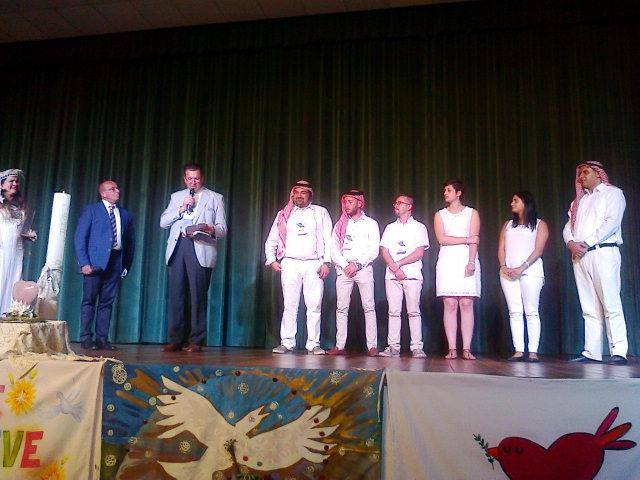
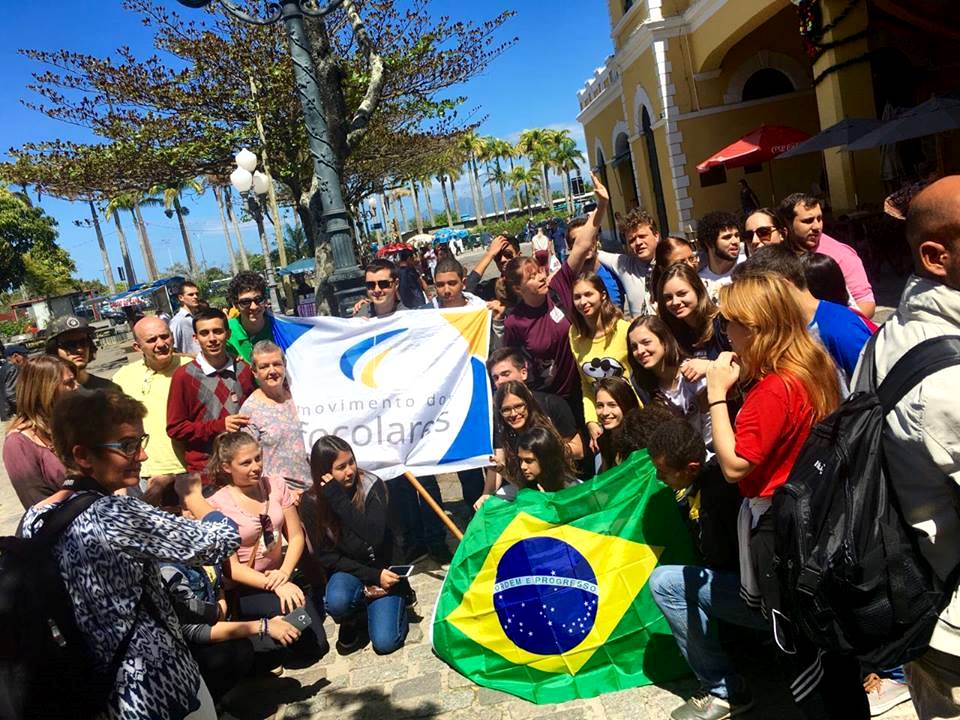 The tenth World Peace Forum and the second Youth World Peace Forum were held at Florianópolis, Brazil on September 22-15, 2016. Some events were held in common and others distinctly. The forum was attended by 1,500 adults and young people from 60 countries, different cultures and various religious faiths. “We Believe” was the main theme which was articulated: “We believe in change,” with a day dedicated to ecology; “We believe in human rights,” with a day dedicated to humanity; and “We believe in peace,’ with a day dedicated to education. The opening ceremony was held on September 21 in the plaza outside the Cathedral, with 400 dancers. Among the five flags that were waved during the dance there was also that of the Focolare Movement. The ceremony was marked by a deep atmosphere of prayer for peace. On September 22 there was a peace march through the city streets, with adults, teenagers and children. President of the Youth Global Peace Forum, Carlos Palma, commented: “It was very moving to see Chiara Lubich’s name written on the door of one of the halls, with the title “Peacebuilder” that had been given to her by UNESCO in 1996 for Peace Education.”
The tenth World Peace Forum and the second Youth World Peace Forum were held at Florianópolis, Brazil on September 22-15, 2016. Some events were held in common and others distinctly. The forum was attended by 1,500 adults and young people from 60 countries, different cultures and various religious faiths. “We Believe” was the main theme which was articulated: “We believe in change,” with a day dedicated to ecology; “We believe in human rights,” with a day dedicated to humanity; and “We believe in peace,’ with a day dedicated to education. The opening ceremony was held on September 21 in the plaza outside the Cathedral, with 400 dancers. Among the five flags that were waved during the dance there was also that of the Focolare Movement. The ceremony was marked by a deep atmosphere of prayer for peace. On September 22 there was a peace march through the city streets, with adults, teenagers and children. President of the Youth Global Peace Forum, Carlos Palma, commented: “It was very moving to see Chiara Lubich’s name written on the door of one of the halls, with the title “Peacebuilder” that had been given to her by UNESCO in 1996 for Peace Education.” 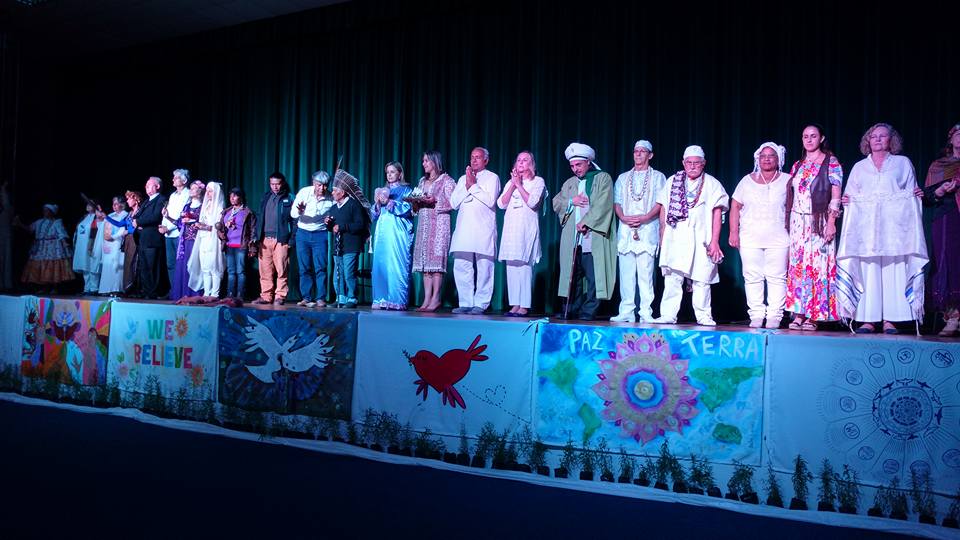 The young people’s forum was an explosion of life, with touching testimonies and presentations of their many projects and personal experiences in being committed to peace. On September 23, an additional 500 young people from around the world were linked up via web for the World Conference of Young People for Peace, which is part of Living Peace International in collaboration with Peace Pals International (New York, USA). The Global Peace Forum concluded on September 25 with a profound inter-religous prayer with 30 representatives from different religious and spiritual traditions. An important part of the programme was devoted to Peace Education, during which Living Peace was presented. The presentation and history of this project, how it has spread throughout the world and its teaching method, was accompanied by a series of testimonies by Brazilian, Spanish, Paraguayan and North American young people, and others.
The young people’s forum was an explosion of life, with touching testimonies and presentations of their many projects and personal experiences in being committed to peace. On September 23, an additional 500 young people from around the world were linked up via web for the World Conference of Young People for Peace, which is part of Living Peace International in collaboration with Peace Pals International (New York, USA). The Global Peace Forum concluded on September 25 with a profound inter-religous prayer with 30 representatives from different religious and spiritual traditions. An important part of the programme was devoted to Peace Education, during which Living Peace was presented. The presentation and history of this project, how it has spread throughout the world and its teaching method, was accompanied by a series of testimonies by Brazilian, Spanish, Paraguayan and North American young people, and others.  The conferral of the Luxembourg Peace Prize to the young Omar Aobou Baker from Cairo, Egypt and member of Living Peace International, was particularly moving. The next Global Peace Forum will be held in Amman, Jordan, September 2017 with adults; and another in Manila, Philippines, organized by the young people in conjunction with the 2018 Genfest. The solemn signing of the Florianópolis Letter of Intent, titled 1% for Peace, brought the conference to an honorable conclusion. This document proposes that private and public entities destine 1% of their internal and external security spending to financing peace education projects. Eliana Quadro, a young woman Volunteer from the Focolare in Florianópolis, received the Commandant of the Global Peace Forum Silver Medal in recognition of her efforts in producing the event. “The Forum was characterized by the deep relationships that were created,” Carlos Palma concluded, “by the great joy in everyone’s hearts and, above all, by the immense gratitude to God and to the charism of Chiara Lubich that projects us towards humanity and makes us builders of peace and unity.”
The conferral of the Luxembourg Peace Prize to the young Omar Aobou Baker from Cairo, Egypt and member of Living Peace International, was particularly moving. The next Global Peace Forum will be held in Amman, Jordan, September 2017 with adults; and another in Manila, Philippines, organized by the young people in conjunction with the 2018 Genfest. The solemn signing of the Florianópolis Letter of Intent, titled 1% for Peace, brought the conference to an honorable conclusion. This document proposes that private and public entities destine 1% of their internal and external security spending to financing peace education projects. Eliana Quadro, a young woman Volunteer from the Focolare in Florianópolis, received the Commandant of the Global Peace Forum Silver Medal in recognition of her efforts in producing the event. “The Forum was characterized by the deep relationships that were created,” Carlos Palma concluded, “by the great joy in everyone’s hearts and, above all, by the immense gratitude to God and to the charism of Chiara Lubich that projects us towards humanity and makes us builders of peace and unity.”
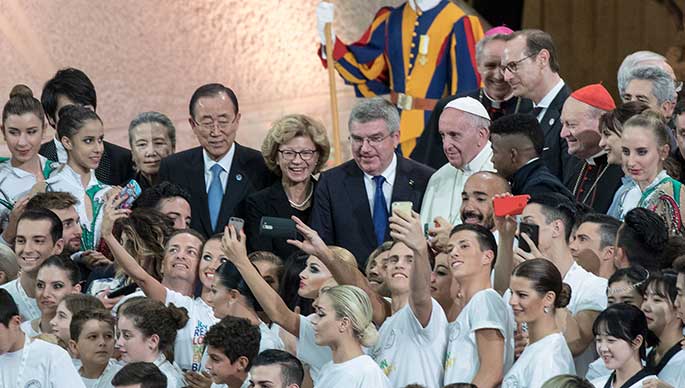
 The 300 delegates who gave a very important contribution to the convention were of various ethnic groups, cultures and religions, representing sportive and non-sportive international organizations, governments, associations and NGOs of companies involved in the variegated world of sports. The moments of reflection, in-depth study of themes, testimonials, and work groups, focused on the irreplaceable and important role of sports in serving humanity. Paolo Crepaz of Sportmeet underlined: «All were overjoyed to have participated and contributed to a historical event due to the novelty of the great attention the Church pays to the world of Sports.» At the conclusion, the athletes solemnly affixed their signatures to symbolise their commitment to becoming game changers,” to form and promote a global network in the conviction that sports can change the world. See: cittanuova.it
The 300 delegates who gave a very important contribution to the convention were of various ethnic groups, cultures and religions, representing sportive and non-sportive international organizations, governments, associations and NGOs of companies involved in the variegated world of sports. The moments of reflection, in-depth study of themes, testimonials, and work groups, focused on the irreplaceable and important role of sports in serving humanity. Paolo Crepaz of Sportmeet underlined: «All were overjoyed to have participated and contributed to a historical event due to the novelty of the great attention the Church pays to the world of Sports.» At the conclusion, the athletes solemnly affixed their signatures to symbolise their commitment to becoming game changers,” to form and promote a global network in the conviction that sports can change the world. See: cittanuova.it
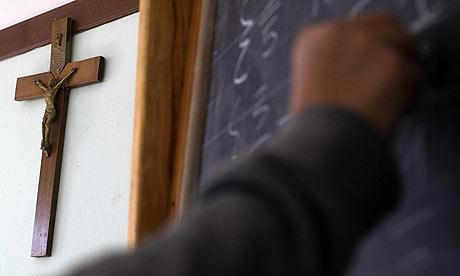
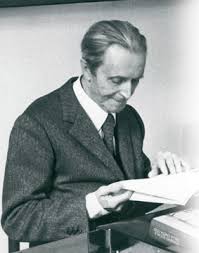 “Teaching is like lighting a flame, not filling an empty vessel. If it is a flame that needs to be fed, then a learner should be taught to guard and increase the warmth and light. A person needs an education that outlasts childhood and continues from birth to death – and that is the period for giving.” Giordani was a writer and journalist, a man of politics but also a formidable educator. His writings were intended to teach, to teach citizens the path of justice. Many were raised on Giordani’s writings during the difficult period of cultural resistance to Fascism and during the Cold War. Giordani taught by living and then writing. In his opinion education should be a universal endeavour that engages the whole citizenry. The function of education is to instill two fundamental skills: freedom and responsibility. Referring to an image used by Plutarch, for Giordani, teaching meant lighting a flame and creating the conditions for the learner to know how to keep it constantly alive. The focus of the learning process would thus be shifted from teacher to learner and from childhood to the entire lifespan. “In the natural order the teachers are the family and the State; in the supernatural order, the Church. When these collaborate toward the same goal – cooperating rather than bumping into each other – education achieves its full effect. Individuals and crowds are not stupefied and neutral in front of their personal destiny, but they face it with courage and you have those epochal periods of great undertakings for peace and for war, for thought and for action. The family is not a mere roost, orphanage or corporate housing: it is a church and a school. Parents have a natural right – therefore from God – to teach that goes beyond generating and nourishing children; an inalienable right that comes before every other civil right.
“Teaching is like lighting a flame, not filling an empty vessel. If it is a flame that needs to be fed, then a learner should be taught to guard and increase the warmth and light. A person needs an education that outlasts childhood and continues from birth to death – and that is the period for giving.” Giordani was a writer and journalist, a man of politics but also a formidable educator. His writings were intended to teach, to teach citizens the path of justice. Many were raised on Giordani’s writings during the difficult period of cultural resistance to Fascism and during the Cold War. Giordani taught by living and then writing. In his opinion education should be a universal endeavour that engages the whole citizenry. The function of education is to instill two fundamental skills: freedom and responsibility. Referring to an image used by Plutarch, for Giordani, teaching meant lighting a flame and creating the conditions for the learner to know how to keep it constantly alive. The focus of the learning process would thus be shifted from teacher to learner and from childhood to the entire lifespan. “In the natural order the teachers are the family and the State; in the supernatural order, the Church. When these collaborate toward the same goal – cooperating rather than bumping into each other – education achieves its full effect. Individuals and crowds are not stupefied and neutral in front of their personal destiny, but they face it with courage and you have those epochal periods of great undertakings for peace and for war, for thought and for action. The family is not a mere roost, orphanage or corporate housing: it is a church and a school. Parents have a natural right – therefore from God – to teach that goes beyond generating and nourishing children; an inalienable right that comes before every other civil right.  The family will educate if parents are not only educated, but aware of their mission to be teachers; if they are able to nurture in the souls of their children greater ideals than food, board and profession; if they act like a teaching domestic church. Religion is also there to remember, to lift up and protect the teaching obligation of the family. And politics should do likewise. The State is the other great educator and accomplishes its role through the school. Nowadays, States run their own schools, and it is there natural right to do so. But it would no longer be their right if they coerced religious conscience and perverted moral conscience; even worse if they prevented the Church from having her own schools.” “For what regards morality, education should be the same from family to State, from parish to workplace. It should draw on God’s law and construct human laws based on God’s law. The soul of such education is a transcendent faith that snatches individuals from the grip of individualism and joins them to one another with an impulse of justice and charity. As one great educator once said, ‘The real social culture was begun on Golgatha’.” (Igino Giordani, “Educazione e istruzione” in La società cristiana, Città Nuova, (1942) 2010, pp. 108 – 111).
The family will educate if parents are not only educated, but aware of their mission to be teachers; if they are able to nurture in the souls of their children greater ideals than food, board and profession; if they act like a teaching domestic church. Religion is also there to remember, to lift up and protect the teaching obligation of the family. And politics should do likewise. The State is the other great educator and accomplishes its role through the school. Nowadays, States run their own schools, and it is there natural right to do so. But it would no longer be their right if they coerced religious conscience and perverted moral conscience; even worse if they prevented the Church from having her own schools.” “For what regards morality, education should be the same from family to State, from parish to workplace. It should draw on God’s law and construct human laws based on God’s law. The soul of such education is a transcendent faith that snatches individuals from the grip of individualism and joins them to one another with an impulse of justice and charity. As one great educator once said, ‘The real social culture was begun on Golgatha’.” (Igino Giordani, “Educazione e istruzione” in La società cristiana, Città Nuova, (1942) 2010, pp. 108 – 111).